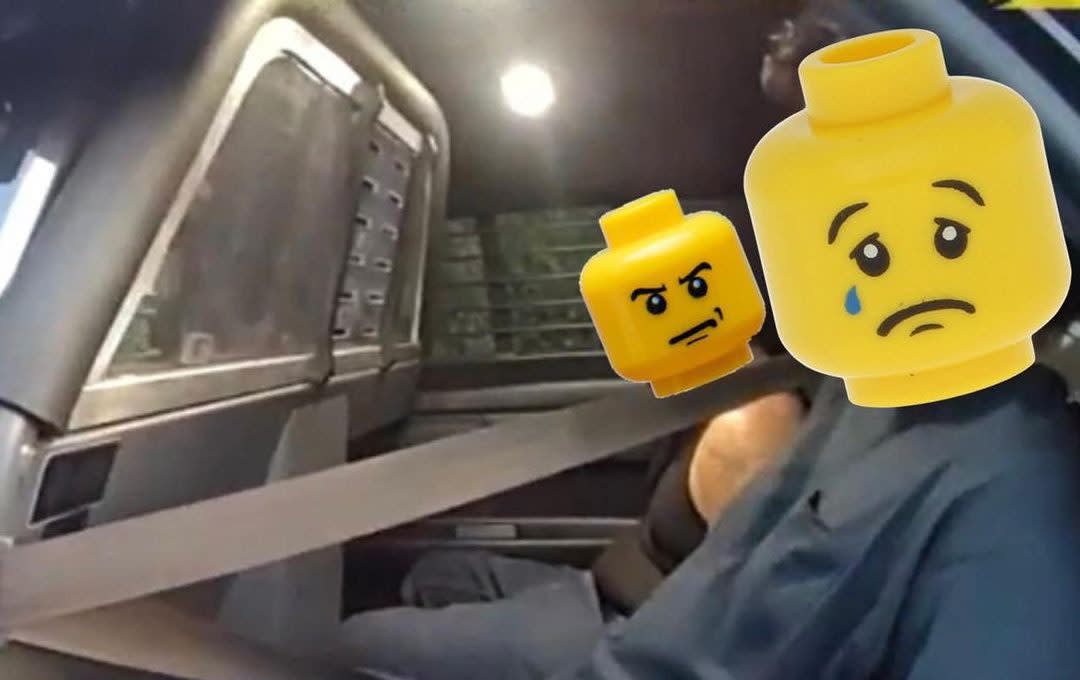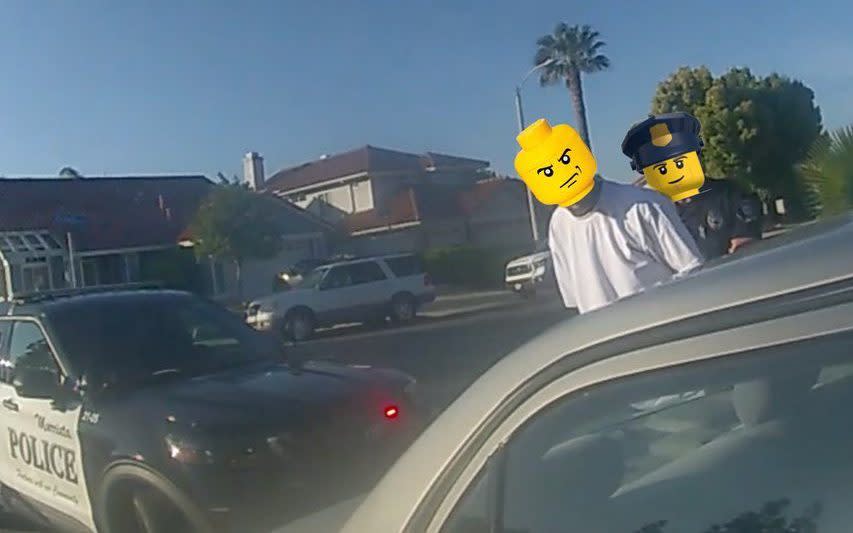Lego bans police from editing minifigure heads on to suspects’ faces

Lego has told a California police department to stop using yellow minifigure heads to protect the identities of suspects.
Police in Murrieta, near Los Angeles, have been using imaging software to edit in the Lego heads in social media posts, in response to a new state law that prohibits officers from publishing photos of people arrested for non-violent crimes.
But the Danish toy company is unhappy about the unsanctioned use of its trademark heads and has urged the police to stop.
“The Lego Group reached out to us and respectfully asked us to refrain from using their intellectual property in our social media content which of course we understand and will comply with,” Lieutenant Jeremy Durrant, of Murrieta police, told Fox News.

“We are currently exploring other methods to continue publishing our content in a way that is engaging and interesting to our followers.”
While the law passed at the start of the year, Murrieta police had already been covering up suspects’ faces with emojis and characters from film Shrek as the department prioritised “the presumption of innocence”.
But it was only after the Lego posts were widely shared on social media that the officers’ creative instincts were formally curtailed.
Until Lego’s intervention, police had shown a sense of humour by using an array of fixed expressions on their digital disguises, including smirking, snarling and smiling Lego faces.

In one of the Shrek posts, the caption said the suspect had been “acting like an ogre” in a Target department store by attempting to steal items worth almost $2,000.
Defending the tactic, the police spokesman said: “In the interest of keeping our residents updated on public safety events in our community while, at the same time, respecting the new regulations, we’ve been obscuring the faces of suspects in our social media posts in various ways.
“We’ve been doing this for the past couple of years, and it’s nothing new to us.”
